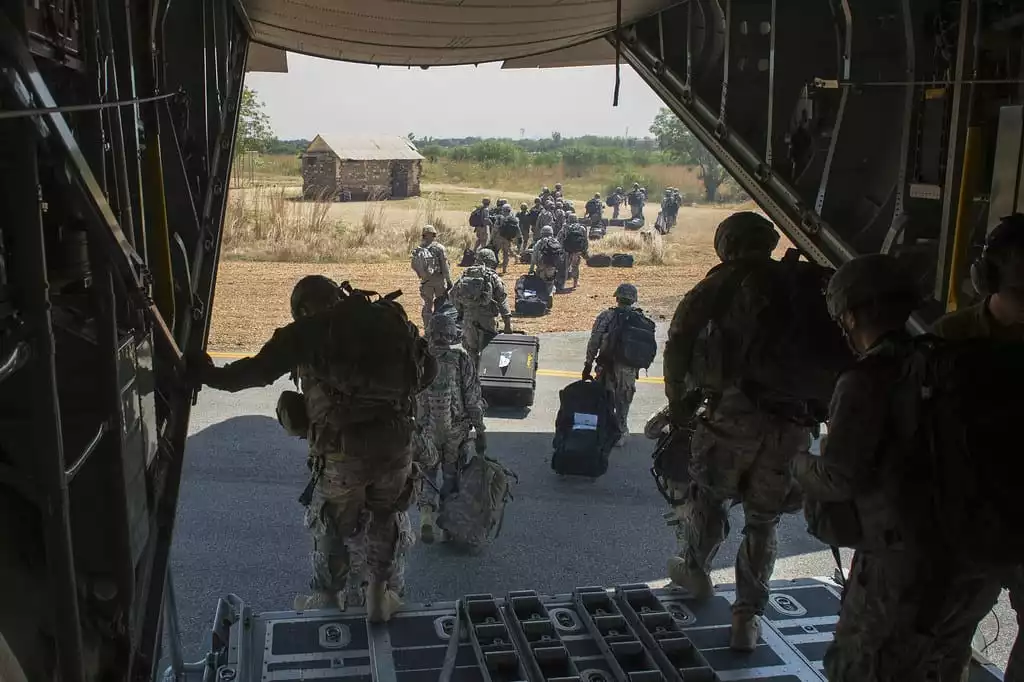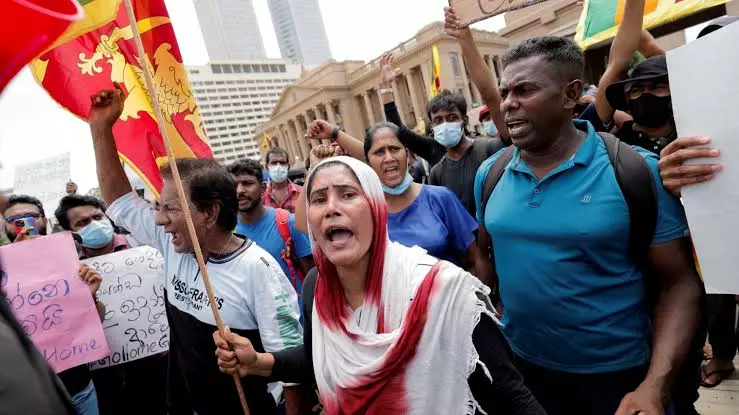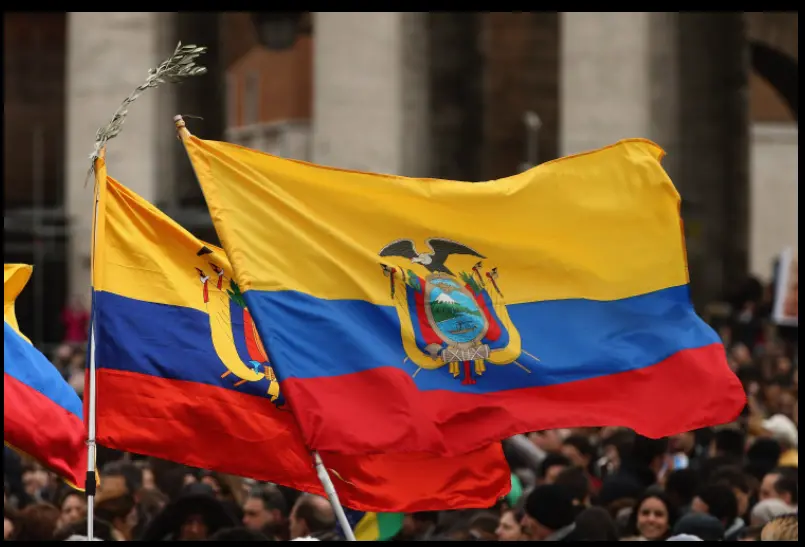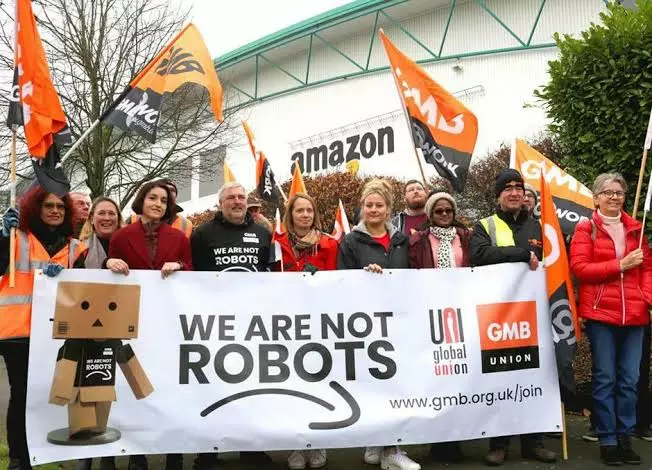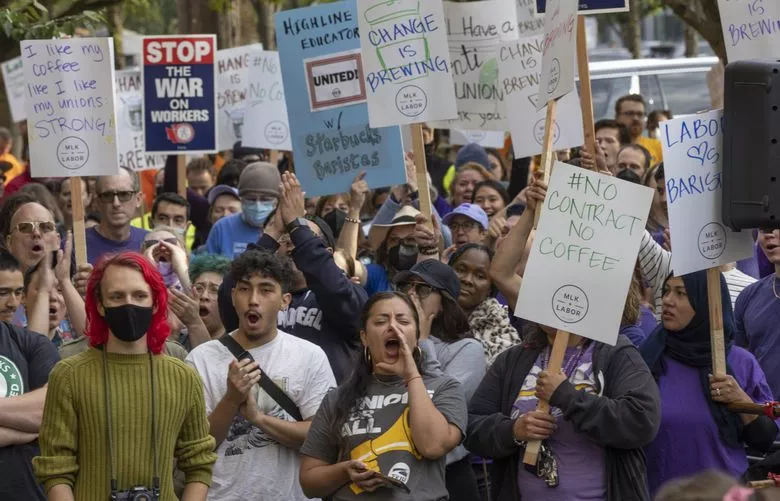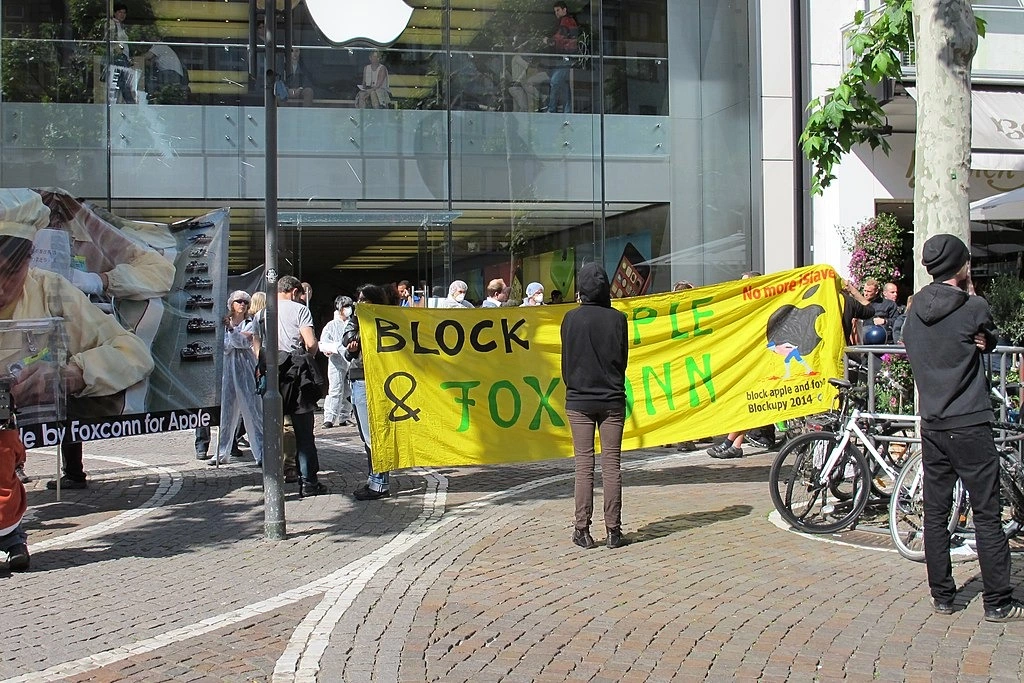Read the part 1 of this article…
Omar al-Bashir
In 1989, Colonel (later Lieutenant-General) Omar al-Bashir led a bloodless coup against the government of Sadiq al-Mahdi and established the Revolutionary Command Council for National Salvation to rule Sudan. Bashir was backed by the National Islamic Front (NIF), the political wing of the Salafist Muslim Brotherhood in Sudan They opposed not only the Christians in the South, but also Sufi Islam which was dominant in Sudan.
A key player in the coup was Hassan al-Turabi, leader of the NIF and of the Muslim Brotherhood in Sudan. Although it is well known that the Muslim Brotherhood was formed with US support, Turabi became increasingly anti-imperialist. Because of this he developed a conciliatory attitude towards Sufis and Shiites. It was Turabi as Speaker of Parliament who invited Osama bin Laden to Sudan, thus prompting a rift with the USA. By 1999, Turabi had completely fallen out with Bashir and many in his own party blamed him for the international isolation of Sudan.
Osama bin Laden stayed in Sudan from 1992 until 1996. This seems to have been the main reason for the USA to put sanctions on Sudan and for the International Criminal Court (ICC) to call for the arrest of Omar al-Bashir. Sanctions on Sudan were imposed by the United Nations in 1995, with, of course, the backing of the USA. Sudan was deemed to be a state sponsor of ‘terrorism’.
[There is not room in this article to look in detail at the way that the USA has been involved in sponsoring terrorism, including the training of Osama bin Laden and the formation of al-Qaeda].
The Revolutionary Command Council dissolved itself in October 1993. Its powers were then passed to President Omar al-Bashir and the Transitional National Assembly. Bashir was committed to imposing the Sharia on the non-Muslim South and to seeking a military victory over the SPLA. This was to lead to a long, drawn-out war which was also going to draw in the mainly non-Arab Muslim and severely neglected Darfur region in the west of Sudan. During the Second Sudan Civil War, something like 1.5 million people died while another 4 million became refugees.
The leader who emerged at the head of SPLM/SPLA was John Garang who had been a Minister in the first government of Jaffar Nimeiry. Garang was an exponent of Sudanese unity based on secularism and federalism. He was opposed to the South becoming independent, but was in favour, instead, of a federal solution.
John Garang obtained support for the SPLA/SPLM from Libya under the leadership of Muammar Gaddafi, from Ethiopia under the leadership of Mengistu Haile Mariam and from Uganda under the leadership of Yoweri Museveni. He was an anti-imperialist.
The war against the people of the South took a huge toll not only directly on human lives, but also on the economy of Sudan as a whole. Serious peace negotiations had started in 2002, with the International Department of the ANC of South Africa playing an important intermediary role.
On 9th January 2005 the Comprehensive Peace Agreement (CPA) was signed in Nairobi, Kenya.
On 9th July 2005, at a ceremony in Khartoum, Omar al-Bashir and John Garang signed a power sharing constitution. Garang was sworn in as the Vice-President of the Republic of Sudan and also becoming Premier of South Sudan. This agreement was to last for 6 years at the end of which there would be a referendum which would give the people of the South the option of either carrying on with the federal system or of seceding. Commenting after this ceremony, Garang stated:
“I congratulate the Sudanese people, this is not my peace or the peace of al-Bashir, it is the peace of the Sudanese people.”
On the 30th July 2005, the helicopter taking John Garang from a meeting with President Yoweri Museveni of Uganda crashed. Those who favoured secession rather than a federal solution then took over the leadership of the SPLM and in 2011, South Sudan became Independent. It should also be noted that the USA gained greater influence in South Sudan after the death of John Garang.
It should be noted that even after the Independence of South Sudan, much of the south of Sudan remained in the hands of the SPLM (North) or in the case of Darfur, of JEM, the Justice and Equality Movement. JEM is made up mostly of African Muslims, especially of the Zaghawa ethnic group.
The International Criminal Court, Omar al-Bashir, and South Africa
Despite the fact that Sudan is not a signatory to the Rome Statutes which established the ICC, the ICC issued warrants of arrest for President Omar al-Bashir in 2009 and 2010. At the behest of the USA, which is also not a signatory, pressure was put on South Africa to arrest al-Bashir when he was attending an African Union Summit in 2015. This would have been unheard of behaviour. South Africa could not set a precedent by arresting a visiting head of state.
President Barack Obama visited South Africa as a sitting President and former President Bill Clinton has visited on a number of occasions. Obama is guilty of war crimes in Libya and Syria and Clinton in Yugoslavia and Congo. But as the late former British Foreign Secretary Robin Cook pointed out.
“The ICC is not there to prosecute American Presidents or British Prime Minister.” Or as US diplomat John Bolton said more crudely:
“We own the ICC. That’s why we don’t want to appear to be an associate of it because we own it. We will prosecute Blacks in Africa. They will prosecute Blacks in Africa on our behalf.''

The Overthrow of Omar al-Bashir and its Aftermath
In December 2018, massive protests began after a government decision to triple the price of goods at a time when the country was suffering an acute shortage of foreign currency and inflation had hit 70%.
President Omar al-Bashir, who had been in power for more than 30 years, refused to step down, resulting in the convergence of opposition groups to form a united coalition. The government retaliated by arresting more than 800 opposition figures and protesters, leading to the death of at least 40 people according to confirmed reports.
On 11th April 2019, after a massive sit-in in front of the Sudanese Armed Forces main headquarters, the chiefs of staff decided to intervene and ordered the arrest of President al-Bashir, declaring a three-month state of emergency. There was an agreement to send Bashir to the ICC, but at present he is still under arrest in Sudan.
Over 100 people died on 3rd June 2019 after security forces dispersed the sit-in using tear gas and live ammunition in what is known as the Khartoum massacre. This resulted in Sudan being suspended from the African Union.
The protests came to an end when the Forces for Freedom and Change (an alliance of groups organising the protests) and the Transitional Military Council (the ruling military government) signed the July 2019 Political Agreement and the August 2019 Draft Constitutional Declaration. The transitional provisions included the creation of a joint military-civilian Sovereignty Council of Sudan as head of state, a new Chief Justice of Sudan, Nemat Abdullah Khair, and a new Prime Minister, Abdalla Hamdok, a 61-year-old economist who worked previously for the UN Economic Commission for Africa.
From August 2021, the country was jointly led by Chairman of the Transitional Sovereign Council, Abdel Fattah al-Burhan, and Prime Minister Abdallah Hamdok.
Hamdok was sworn in on 21st August 2019. He maintained that over 70% of the 2018 budget was war-related. There were shortages of food, fuel, and hard currency. Hamdok initiated talks with the IMF and World Bank aimed at stabilising the economy; he estimated that USD 10bn over two years would suffice to get through the immediate problems. The governments of Saudi Arabia and the United Arab Emirates invested significant sums of money in supporting the TRC after the removal of Bashir.
On 3rd September 2019, Hamdok appointed 14 civilian ministers, including the first female foreign minister and the first Coptic Christian, also a woman.
On 25th October 2021 General Abdel Fattah al-Burhan staged a coup against the civilian government, including Prime Minister Abdalla Hamdok. Burhan then declared a state of emergency.
On 21st November 2021, Hamdok was reinstated as Prime Minister after a political agreement was signed by Abdel Fattah al-Burhan to restore the transition to civilian rule. This was due to the pressure imposed by both Arab and Western countries. The 14-point deal called for the release of all political prisoners detained during the coup and stipulated that a 2019 constitutional declaration continued to be the basis for a political transition.
On 2nd January 2022, Hamdok announced his resignation from the position of Prime Minister citing continual interference by the army. Osman Hussein then became Acting Prime Minister, a post that he still holds nominally.
At the beginning of April 2023, as an internationally-brokered plan for a transition to civilian rule was discussed, power struggles grew between army commander and de facto national leader Abdel Fattah al-Burhan, and his deputy, Mohamed Hamdan Daglo (known as ‘Hermedti’), head of the heavily-armed paramilitary Rapid Strike Force (RSF), largely formed from the Janjaweed Arab militia which had created havoc in Darfur among non-Arabs.
On 15th April 2023, the personal conflict between Burhan and Hermetdi has erupted into open battles on the streets of Khartoum between the army and the RSF, including the use of tanks and planes.
By the third day, 400 people had been reported killed and at least 3,500 injured, according to the United Nations. African Union and Saudi diplomats headed to Sudan to attempt to mediate a cease fire. As fighting continues, soldiers from various countries have arrived ostensibly to remove their civilians; so far, that is all they seem to be doing, however we must watch very carefully, protection of foreign nationals and “peace-keeping missions” in Africa have had a shocking history.
Analysis and Conclusions
It is very difficult to give a hard and fast opinion about precisely what is happening in Sudan or what should or should not happen. By giving a brief history of Sudan, I have tried at least to present the background of what is currently taking place.
The uprising against the bloody and incompetent Omar al-Bashir is genuine. But the army is still in control, or rather, two different army factions are fighting for control, stable civilian rule has been frustrated.
As regards the main opposition to military rule, the Forces for Freedom and Change have definitely had some degree of support from the CIA, more especially one of its chief components the Sudanese Professionals Association. Some indeed have gone as far as to call the uprising against Bashir a ‘Colour Revolution’.
Recent reports indicate that Hermedti staged this uprising in conjunction with Colour Revolutionists within the Forces for Freedom and Change, therefore suggesting CIA involvement. It appears that a genuine popular uprising against a murderous and incompetent military leadership has opened a window of opportunity for faltering US imperialist interests.
The current Donbass War and world de-dollarisation definitely weakens the chances of the USA and its allies taking control of the situation to suit their interests, but at present, we can only watch as events unfold.
Editor's Note:
The views and informations expressed in the article are solely those of the author and may or may not reflect the views of The International. We believe in providing a platform for a range of viewpoints from the left.
